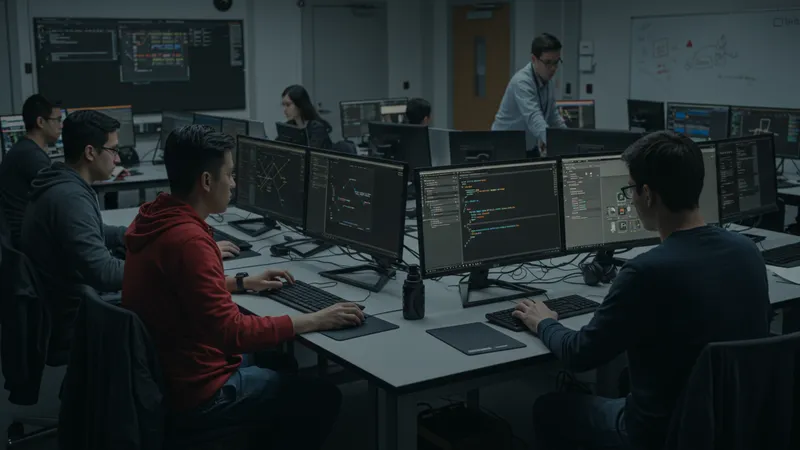

Did you know that the average data breach costs companies approximately $3.86 million? Yet surprisingly, cybersecurity remains one of the most underappreciated fields despite its pivotal role in protecting our digital world.
With cyber threats escalating, understanding the educational framework and industry demand for cybersecurity degrees has never been more critical. Companies, both large and small, hunt for qualified professionals, yet the talent pool remains dry.

While many believe a degree in cybersecurity merely equips you with defensive methodologies, these programs dive much deeper, blending technical wizardry with psychological insights into hacker mindsets. But that’s not even the wildest part…
Universities and online platforms have scrambled to develop extensive curricula to match the sophistication of modern-day cyber threats. Still, an alarming gap persists between what’s taught and what the industry demands. But that’s not even the wildest part...
The education space for cybersecurity is evolving rapidly, with groundbreaking insights and niche specialties emerging. What happens next shocked even the experts…
In recent years, the prevalence of cyber-attacks on high-profile organizations has spotlighted the value of advanced cybersecurity education. With incidents like the infamous SolarWinds hack, businesses are desperately seeking individuals equipped with specialized training to protect their infrastructures. This urgency has fueled an unprecedented boom in the enrollment for cybersecurity degrees and certifications. Institutions are racing to keep up, lining up partnerships with tech giants to provide cutting-edge course content.

What you may not know is that cybersecurity is not just about technology; it’s a multidisciplinary domain that now includes legal frameworks and ethical hacking principles. This complexity is appealing to students across different academic backgrounds, making cybersecurity education one of the most diverse fields. But there’s one more twist...
Interestingly, the demand for cybersecurity skills is such that job seekers with even basic courses often land roles quickly. Salaries for entry-level cybersecurity analysts start soaring higher compared to other IT roles, reflecting the field's critical importance. This salary jump is a major attraction for students looking for degrees that offer both stability and fiscal reward. Yet, there's more beneath the surface...
However, academia struggles to adapt fast enough to technological advancements and constantly evolving cyber threats. Graduates sometimes find themselves needing on-the-job training to fill gaps left by outdated coursework. This ongoing challenge keeps pushing for a reform in educational approaches to truly align with industry necessity. But what you read next might change how you see this forever.
Few realize that the heart of a cybersecurity degree lies within its intricate curriculum design. Thought leaders and industry experts collaborate intensively to craft programs that ensure rewarding career paths for students. Ethical hacking labs and real-world case studies become vital components, offering students a chance to tackle realistic scenarios, transcending rote memorization or theoretical knowledge.

But here’s what’s not often discussed: many institutions are integrating psychological and behavioral sciences to understand hacker motivations and user vulnerabilities better. This blend is reshaping the traditional tech-centric view, adding layers of sophistication to cybersecurity education. What’s shocking is how rare these courses still are, despite their proven efficacy.
Insider tip: Pay attention to programs offering hands-on projects and collaborations with cybersecurity companies—these often provide unparalleled insights and networking opportunities. Such real-world exposure is invaluable, fast-tracking students into industry roles with confidence. However, universities face the challenge of scaling these offerings due to resource constraints, creating disparities in educational quality across institutions.
The revolution in education design doesn't stop: micro-degrees and special certifications are being developed to quickly address the fast-changing demands of the industry—allowing professionals to stay updated without undertaking full degrees. But the next revelation might just reshape the traditional pathways...